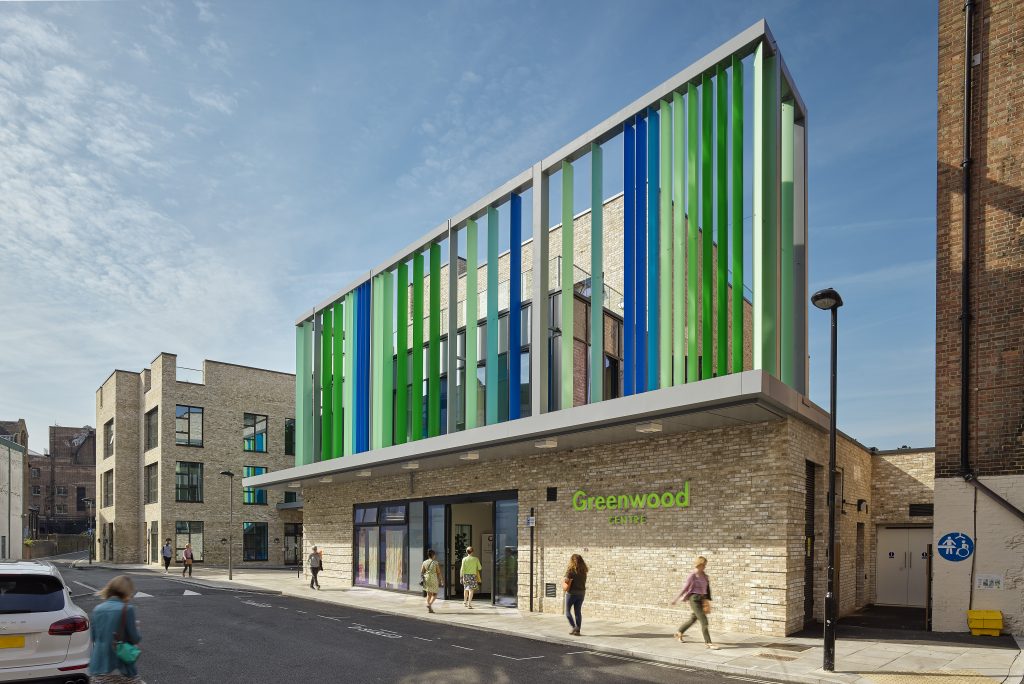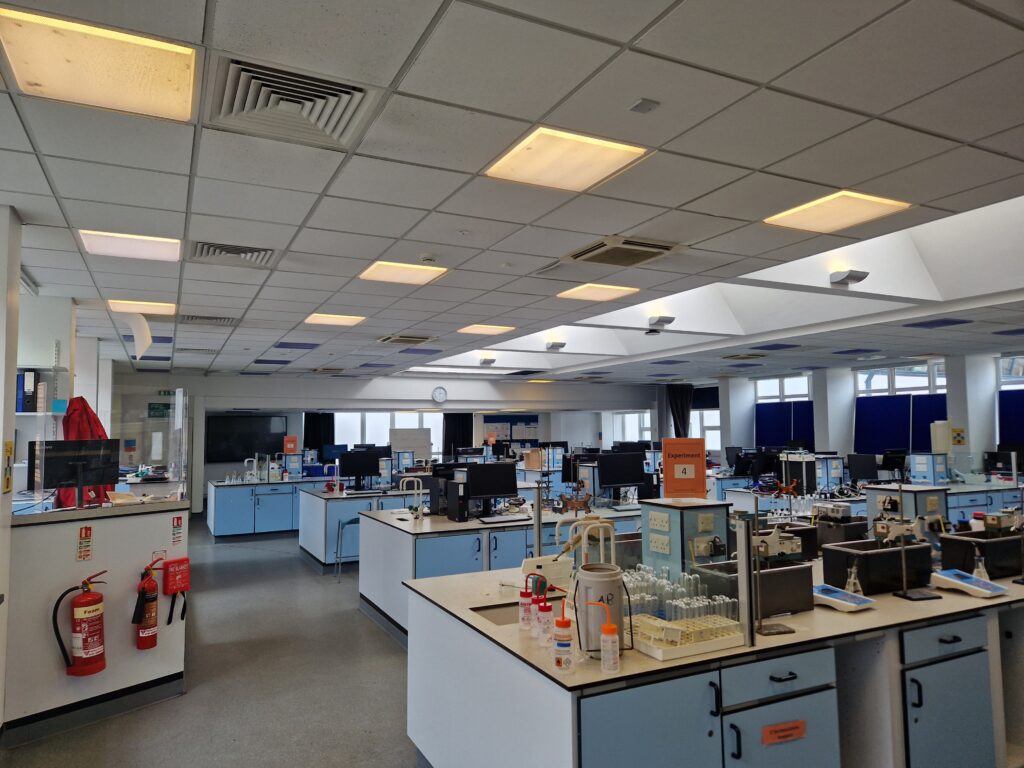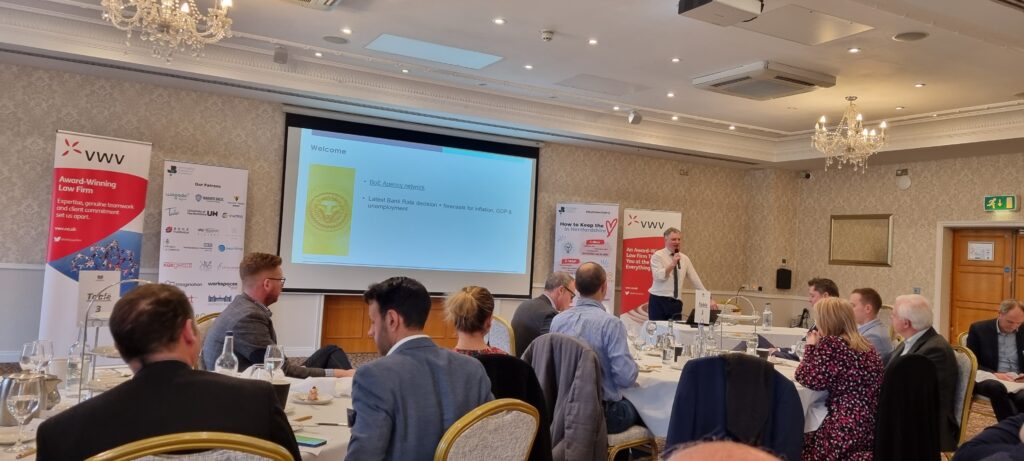With a reputation for delivering cutting-edge solutions across various engineering disciplines, TGA’s team boasts a wealth of knowledge and expertise. Now, our “In the Spotlight” blog series brings their stories to you, shedding light on the people who make TGA Consulting Engineers the industry leader it is today.
In this exclusive series, we dive deep into the lives and experiences of TGA’s talented engineers. We uncover their journeys, passions, and the innovative projects they’re currently working on. With each interview, you’ll gain a unique perspective into the world of engineering and the people driving change within the industry.
Introducing…
New starter, Michael Dunlavy. He is a Principal Mechanical Engineer with an extensive amount of knowledge, specifically in the Healthcare sector.
Michael is a Chartered Engineer with over 35 years’ post-graduate experience within the Building Services Environment. He has been involved in project management at various levels and has a wealth of knowledge in all related areas such as contractual and interpretation planning. Over the last 10 years he was involved in a variety of projects within different facilities.
Let’s find out a bit more about him….
What’s your name/job title/role/office?
Michael Dunlavy. Principal Mechanical Engineer based in Newcastle.
What current projects are you working on?
Having only just started with TGA, I am currently working alongside my colleagues, Emma Marshall & Will Powis, to develop the M&E design works associated with the refurbishment and upgrade of ventilation systems, within a number of existing theatres at South Tyneside hospital.
What’s the most exciting part of your job?
The final commissioning of Mechanical services installation on site, where the final systems performance operate in line with the original design intent for each system.
Do you have any people who inspire(d) you/your work?
Within healthcare projects, you encounter dedicated client/estates teams on each site who are committed to keeping each hospital operational by maintaining and operating various specialised mechanical systems. In most cases, the various Trusts have limited financial resources and it amazes me that they continue to ensure that these facilities are operational on a daily basis.
What is your number 1 tip/piece of advice for aspiring engineers?
Starting off in this industry can be very daunting for new engineers. If you are unsure or don’t understand how a mechanical system works, don’t be afraid to discuss with other team members to seek guidance.
What’s been your career path so far?
Following my initial apprenticeship in Building Services, I graduated from Northumbria with BSc Hons degree and then worked two years in local authority before moving to Africa.
I then spent 11 years in sub-Saharan Africa, working in local consultancy and ended up as a Partner in the business.
Leaving Africa, I relocated to Dublin and spent seven years within a design consultancy primarily working with the Irish Prison service.
Leaving Dublin in 2007, I then returned to Newcastle to work within design consultancies (WYG & RPS Group) in Newcastle with the majority of my works covering the Healthcare sector.
Healthcare projects with which I have been involved, include:
Refurbishment of Queen Elizabeth Hospital (Africa),
Renovations of small Leprosy Clinic (Africa),
New Energy Centre & refurbishment of primary infrastructure at North Tees hospital,
New North West Cancer facility at Altnagelvin hospital in Northern Ireland,
New 12-storey Critical Care facility at Belfast Royal Victoria hospital,
Refurbishment of Pathology laboratories and general wards within University hospital of North Tees.
How have your engineering skills developed over your career?
Over the last 35-40 years the introduction of design software packages + CAD/Revit/MEP development has meant that working within this environment new skills have been introduced which need to be managed. CPD’s are now an integral factor in maintaining appropriate skills for the Building Services sector.
Why did you pursue a career in engineering/anything specific that solidified you wanting to go for it?
My initial exposure to Building Services covered ventilation and cooling systems within marine vessels for the MOD. I was fortunate that part-way through my apprenticeship I was transferred to the land-side which provided access to the full spectrum of mechanical engineered systems within a variety of buildings/hospitals/sports centres etc.
Where do you see things going in the future/future aspirations?
I shall be working with younger graduates/engineers within the TGA offices in the hope that I can assist with their long-term development as engineers for the future.
Why did you join this company?
TGA primarily offered the opportunity to facilitate a mentoring position within the company, whilst also looking to assist with the development of their Healthcare portfolio.
What area of engineering/Healthcare are you most interested in, and why?
I really enjoy the development of specialist ventilation systems within theatres and isolation room facilities. The recent updates of HTMs (HTM 03-01) focus not only on maintaining ventilation rates and pressure regimes but also a requirement that energy and carbon reduction is also taken into consideration.
How do you keep up with the latest changes to engineering codes and regulations?
Review of monthly CIBSE literature, participation with CPD + regular review of NHS/HTMs/HBNs documentation.
As a registered LCC, I am also required to maintain knowledge base with current Building Regulations.
How often do you update training/how do you to ensure you are informed on the latest engineering developments/latest software programs?
The industry that we work in is constantly developing and changing and consequently new legislation and software programs are being introduced with some regularity.
As a registered Chartered engineer, I am committed to ensuring that my knowledge base is up to date and relevant to the industry. The introduction of some new software programmes will also be influenced by specific programs that are utilised within individual practices.
How do you handle a last-minute shift in goals when much of the work is already completed?
The industry that we work in means that we are constantly trying to present appropriate solutions for our clients. However, I am also conscious that financial constraints can in certain situations limit the options.
The term ‘Value engineering’ is well known within the building industry and this sometimes requires modification to the design works that have already been completed. Ultimately our aims should be to present the best solutions to our clients to cover all situations.



